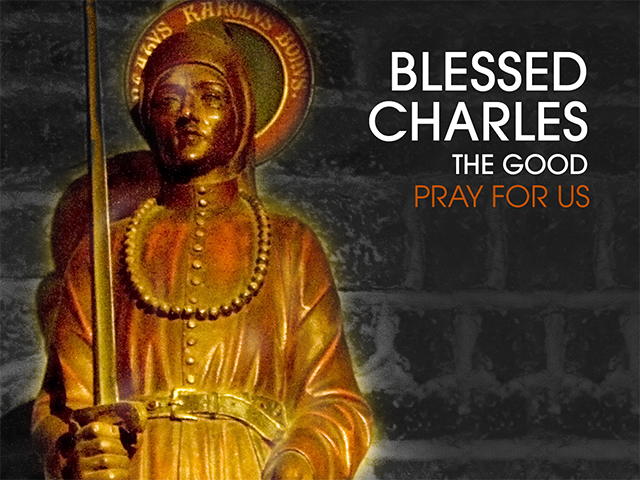



Blessed Charles the Good (1083–1127), also known as Charles I and the Count of Flanders, was born in Denmark, the only son of King Canute IV (St. Canute) and Adela of Flanders. He was five years old when his father was assassinated in the Odense Cathedral, after which he and his mother fled for their lives to Flanders. He grew up in the royal court in that country and accompanied his maternal grandfather, a Count, on a crusade to the Holy Land. After his grandfather's death, Blessed Charles became an advisor to the next Count, his uncle; after his uncle's death, Charles became Count. He was highly regarded by the people for his holiness and virtue. He was outspoken against the common practice of hoarding grain and selling it at inflated prices, and opposed the prominent Erembald family who gained their financial prosperity through this unjust practice. On March 2, 1127, while Charles was in church praying, he was slain by soldiers loyal to the Erembald family, in the same manner his father was killed. His death sparked a public outcry and uprising against the Erembald family, while Charles was immediately looked upon as a martyr and saint. His feast day is March 2nd.